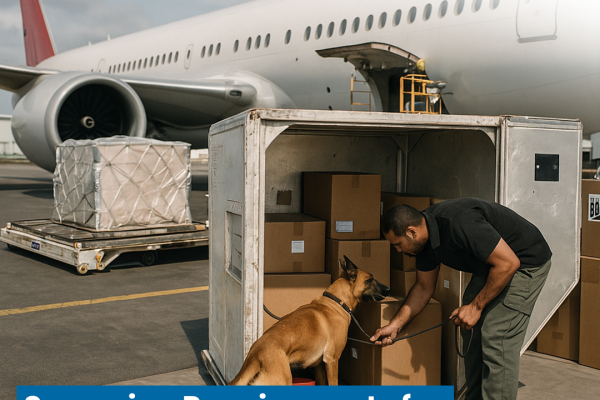There is sometimes uncertainty from exporters about Australia’s mandatory screening of outbound airfreight. We understand that when you’ve opted for airfreight as the best mode of transport for your goods, you want to keep the speed up and the costs down. When you ask for express, you don’t want delays.
Be assured that you are not being singled out as being suspicious – the screening process is part of the Enhanced Air Cargo Examination (EACE) program. To ensure the safety and security of Australian international air services, all outbound international air cargo, regardless of its destination, must be examined before it is loaded onto the plane.
If the cargo originates from a Known Consignor, it is considered cleared and does not require further piece-level examination prior to export. Known Consignors are approved people eligible to issue their own Security Declarations and avoid X-ray and inspection fees under security regulations. If you are a regular exporter and are not already familiar with this practice, call us for more information.
Freight can be pre-screened and presented with a Consignment Security Declaration (CSD), screened at the terminal if facilities are available. A consignment requiring onsite screening will need to be presented at piece-level (except for homogeneous freight) before it can be accepted for uplift.
Methods of Screening:
- Piece Level Screening: This involves examining each individual box, carton, pallet or other item of cargo.
- Consolidated Form – homogeneous cargo packed on pallets, boxes stacked and wrapped in plastic or in unit load devices (ULDs).
- Known Consignor (KC): If the cargo originates from a Known Consignor, it is considered cleared and does not require further piece-level examination.
- Regulated Air Cargo Agent (RACA): RACAs can also examine and clear air cargo under the EACE program.
Secondary Screening:
In some cases, a secondary screening may be required, and exporters will be notified.
Timeframes for International Airfreight:
Express freight needs to be lodged at least 270 minutes (4.5 hours) before flight departure;
General cargo needs to be lodged at least 360 minutes (6 hours) before flight departure.
The air cargo sector is regulated by the Australian Government, consistent with international standards. This means that all stakeholders must follow rules and procedures to maintain the security of air cargo.
For more information about exporting your goods by international airfreight, talk to us at Colless Young. Call Andrew, Tel: +61 7 3890 0800 email enq@collessyoung.com.au.

